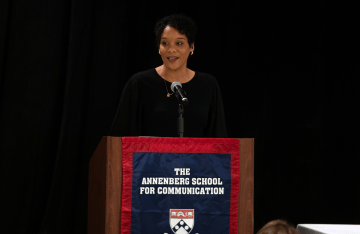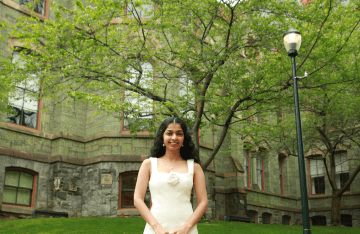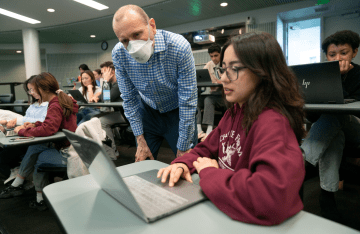In Their Own Words: Annenberg's Undergraduate Communication Majors
Five current Communication majors share their experiences, both on and off campus.
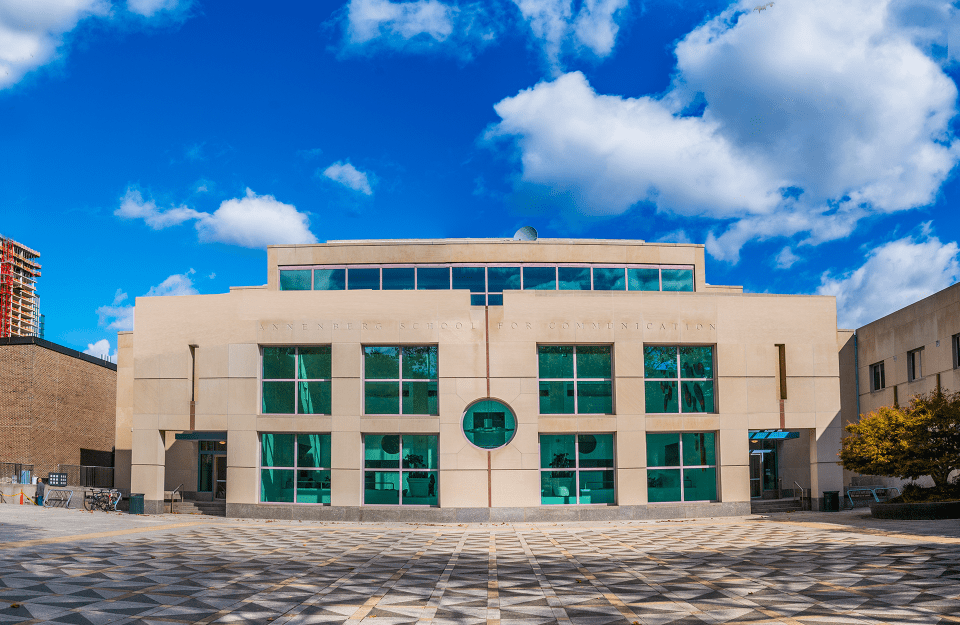
In celebration of the 40th anniversary of the undergraduate Communication major at Penn, we featured five of our current Communication majors in a series on social media. Below is a compilation of that series, in which we captured the students in their own words.
Molly Rooney
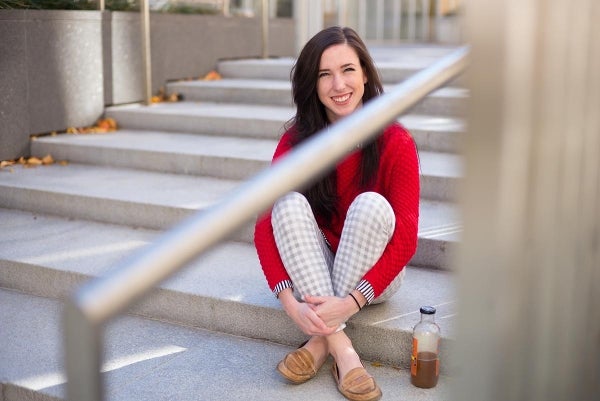
“Ever since I was little, I wanted to be a ballerina. My Poppop took me to see the Nutcracker at the Pennsylvania Ballet when I was three. He said I didn’t move the entire ballet, and my mom put me in dance lessons after that. Right out of high school, I got a scholarship to study dance at Point Park University in Pittsburgh. My sophomore year, I got into the Boston Ballet Competition, and I realized ballet was definitely what I wanted to do, so I didn’t go back to school. I trained really hard over the summer and got a job at First State Ballet Theater in Wilmington, where I’m still a professional ballet dancer. It’s a great company, and I love it there. After two years in the company, I decided to go back to school. A friend told me about the LPS program at Penn, and I couldn’t believe it when I got in. I have rehearsal in the morning, and I come to Penn in the afternoon. I’ve been taking a few classes a semester, and I’ll finally be able to walk in May.” —Molly Rooney (C’17)
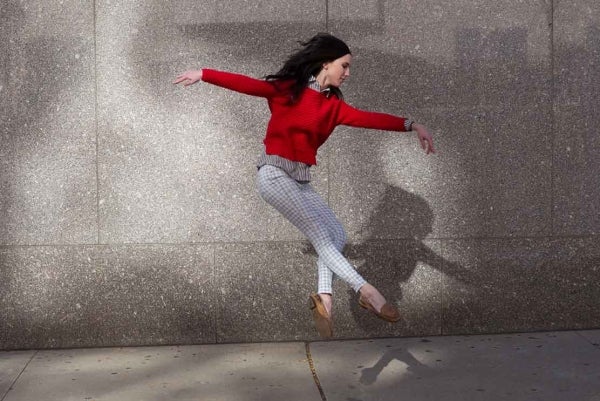
“The only reason why I’m here at Penn is because of ballet. I don’t think I would ever have applied here or been accepted if I hadn’t taken the professional route. I wouldn’t have thought I was capable of going to Penn if I hadn’t proven to myself through ballet how strong I am. It’s definitely a hard path, mentally and physically. I’m not the most naturally gifted dancer, but I work really hard. My teachers say I work like a horse. I just always keep pushing, and I think that if everyone continues to push, they can get where they want to be.” —Molly Rooney (C’17)
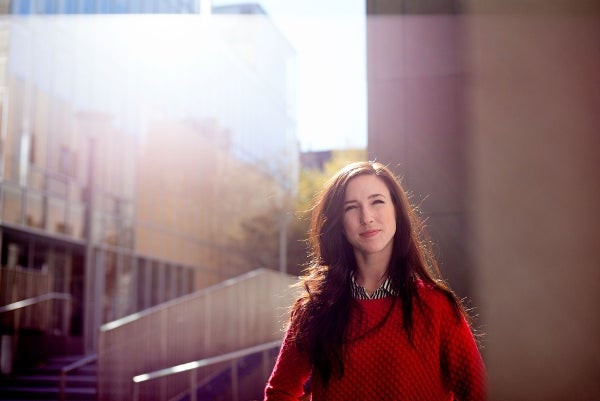
“My cousin, who was one year younger than me, passed away from a brain tumor a few years ago. While he was going through cancer treatment, Make a Wish offered him several opportunities to do whatever he wanted, and he chose to do a missionary trip. Even while he was fighting for his life, he wanted to help other people. That really makes me evaluate what’s important.
I probably seem crazy saying this, but he haunts my cell phone. Siri calls me Quinn, which was his name. And when I look at my contact information, it’s my photo, but his name. Isn’t that weird? I even went to the Apple Store for help, and they said they couldn’t change it. It’s sort of nice, though, to have that reminder of him.” —Molly Rooney (C’17)
Barry Johnson
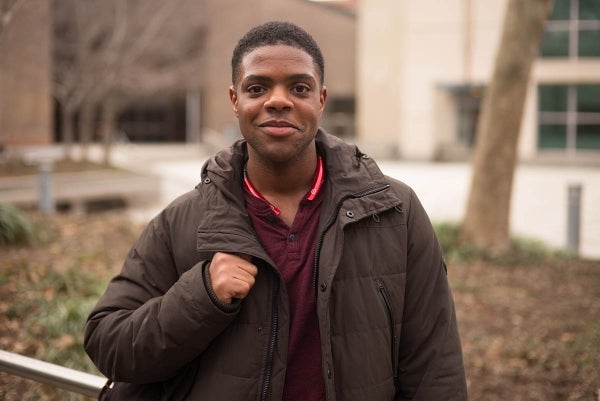
“Campaigning for Hillary Clinton was one of the hardest things I’ve ever done, but I’m extremely proud to have been part of that team. A lot of people were saying millennials weren’t as enthusiastic to vote for Hillary, but here on campus they were. We registered over 2,500 people to vote. I joined the campaign in April of last year, and I campaigned for nine months. I even took a semester off of school. I thought, ‘When will I ever have another opportunity in my life to do this?’ I knew I would still graduate on time, and I would get to do something historic and meaningful, regardless of the outcome. I can look back and know that I was on the right side of history.” —Barry Johnson (C’17)
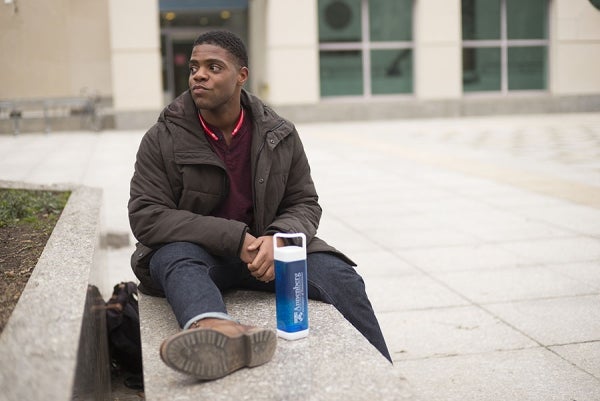
“My mom suffered a brain tumor in 1986 – my older brother was six at the time – and she had to relearn how to do everything while she recovered. She’s disabled now, and she can’t work, so my brother and I had to help out from a young age. My mom is an inspiration to me, and she taught me to never give up. She always says to keep pushing and go after what you want.” —Barry Johnson (C’17)
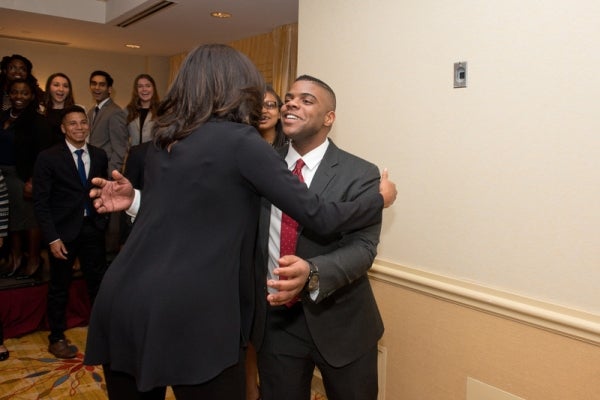
“The DNC has a program called the Hope Institute, which brings students from around the country to D.C. to learn about politics and public service. Over 500 people applied last year, and they selected less than 30 of us. We had the opportunity to hear from some amazing speakers, the first of whom was Michelle Obama. After we posed for a group photo, I was the first in line to meet her, and she said, ‘Give me a hug!’ You don’t say no to that!” —Barry Johnson (C’17)
Liz Heit
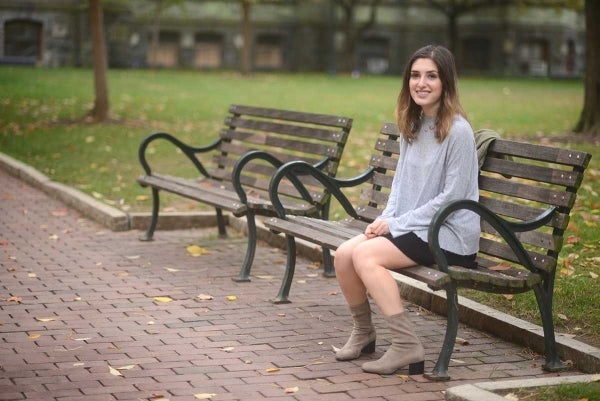
“Communication is the only major where you really hone in on people, what they respond to, and the way they get messages to one another. The ability to communicate, even on an individual basis, is something a lot of college students lack, even Ivy Leaguers. I think it’s a really practical and important major.
I’m an intern with the Penn Prevention Research Center, and I operate its Twitter account, @UPennPRC. It really is a craft. How do I get people to engage? How do I get their attention? Once I tweeted something about MyPlate and they retweeted us. That might seem insignificant, but it was a big deal for me. @MyPlate has 94,000 followers, so it felt like my voice was being heard.” —Liz Heit (C’18)
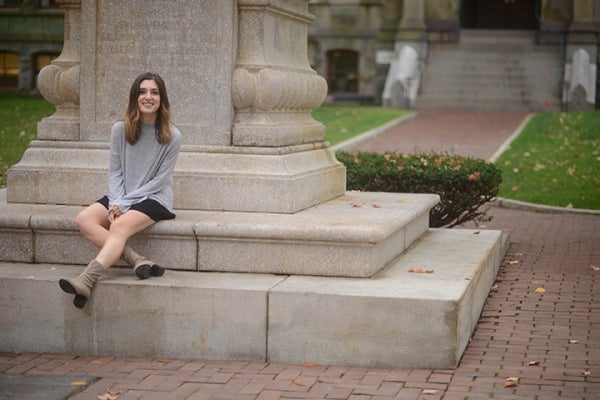
“At Penn, people are incredibly hard on themselves. They wouldn’t say to a friend, ‘You’re horrible’ if they got a bad grade, but they say that to themselves. People should talk more about failure and be more open about failing. It happens to everyone. Stop beating yourself up, and treat yourself how you would treat a friend. Of course there are times I need to take this advice too.” —Liz Heit (C’18)
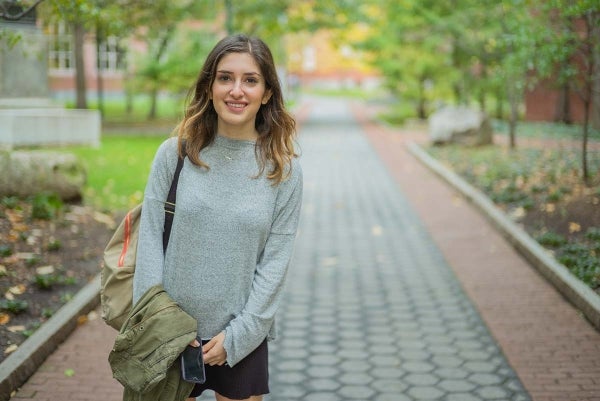
“I have a photo of me holding my little sister when she was born, and I’m literally screaming because I was so happy. She’s nine now, and I make an effort to call her at least once a day. She’s such a bright kid, and she’ll befriend anyone. I’ve been like a second mom to her. I’m 16 years older than my youngest brother, and a lot of people make the assumption that he’s my kid when they see us together. Helping to raise my young siblings has taught me a lot about caring for other people.” —Liz Heit (C’18)
Mariela Morales
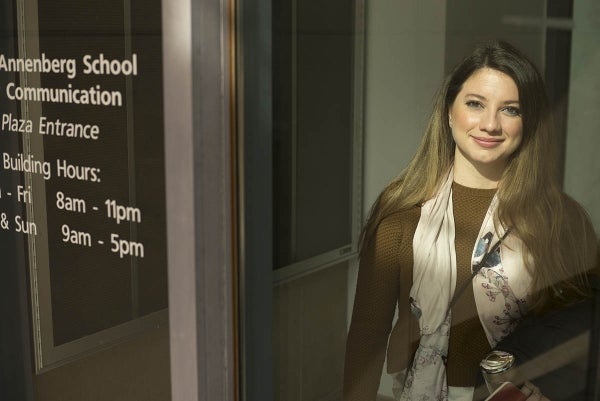
“In Havana, my mom was a speech therapist and my dad was a naval engineer, but they weren’t making ends meet with their salaries. In the 1990s, Cuba allowed for a small amount of private enterprise, and my grandparents had a beach house that hadn’t been expropriated by the government. When I was four, we moved to the beach to operate it as a bed and breakfast.
Private enterprise was seen as a necessary evil. I learned at a young age that what my parents did was not something to be proud of. People who worked with tourists were seen as traitors or ‘ideologically diverted.’ We had cable at home, which was illegal, and I watched CNN all the time. I interacted with tourists too, so between the two, I learned that a lot of the things we were told by the Cuban government about the rest of the world were lies. I was a total dissident by the time I was 10 years old.” —Mariela Morales (C’17)
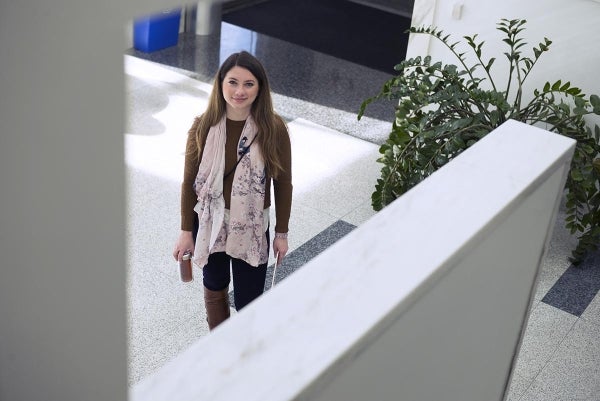
“Seven years ago, my sister and I moved to Miami with our parents. She left law school and I left journalism school. I worked in a mall selling sunglasses, and then as a clerk for a courier. I attended Miami Dade College, taking night classes, and then I applied to Penn. I’m descended from Pennsylvania Quakers who moved to Cuba and converted to Catholicism. Many people in my family have attended Penn over nine generations, starting with John Wilson and continuing to present day. My great-great-grandmother actually met my great-great-grandfather in Philadelphia.” —Mariela Morales (C’17)
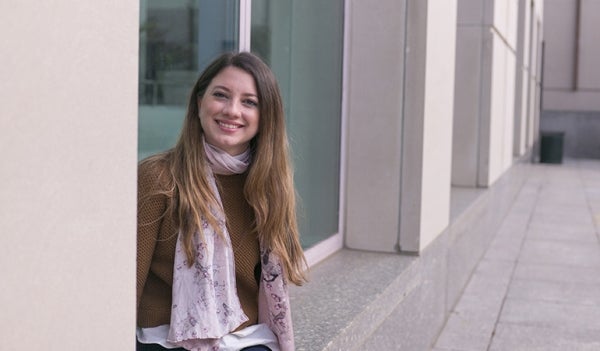
“At Penn, I do stress about how much work and reading there is to do, but I don’t worry about grades. I don’t look at my grades as a reflection of my talents and my possibilities. I started Penn when I was 25 years old. After I immigrated from Cuba, I had to quit school and sell sunglasses for two years, not knowing if I would ever get to go back to school. I know what it’s like to feel like a failure, and that has taught me what’s important. There are many ways to achieve success.” —Mariela Morales (C’17)
Nick Buchta
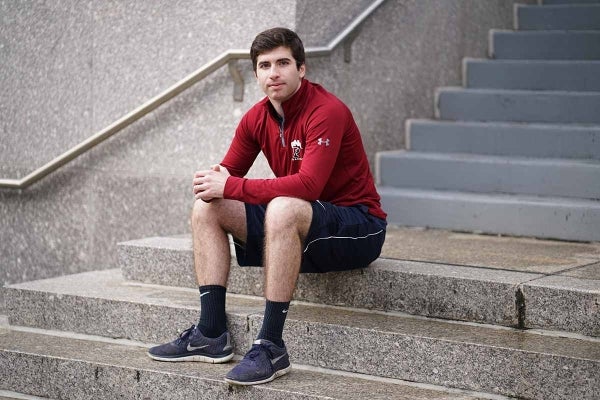
“Neither of my parents set out to be nurses. My dad was in the army, then he ended up working a few different jobs, and became a nursing assistant and then a nurse. My mom was going to declare business as her major in college, but the business office was closed and the nursing office was right next door, so she declared that instead and she’s been a nurse for 35 years. My grandmother was born in Italy and immigrated to America at age 3. She was a homemaker most of her life and then at age 60 decided to go into the ministry and became a pastor, which she did until she was 87.
The places they ended up were in no way the places they thought they were going to be, but they were the right places. And that reminds me that no matter how confident I am in what I’m doing – I plan to attend law school and then serve in the Navy JAG corps – that might not be where I end up, and that’s okay.” —Nick Buchta (C’17)
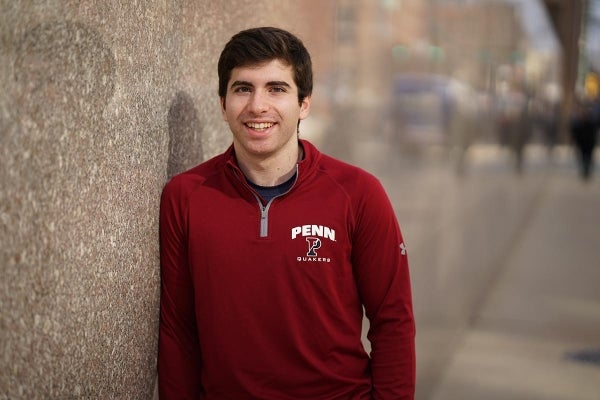
“Most of my Annenberg coursework has focused on Political Communication. Annenberg has given me the mentors that I needed in my life at Penn. Professors Eisenhower and Felzenberg in particular have gone above and beyond. Professor Eisenhower and I have a weekly meeting and we talk for an hour – 10 minutes about my thesis and the other 50 about baseball. I’m the first person from my hometown to go to an Ivy League school in the last 10 years, and I don’t know anyone who’s gone to law school. I haven’t had a frame of reference for some of the things I’ve faced here, but my mentors have helped me through. I’ve had the opportunity to meet so many important people through my courses at Annenberg, like [Washington Post journalist] Robert Costa, [pollster] Peter Hart, and different members of congress. Having the chance to meet these people and learn from them is amazing. I mean, I get to sit in David Eisenhower’s office every week. That awe is never going to go away.” —Nick Buchta (C’17)

